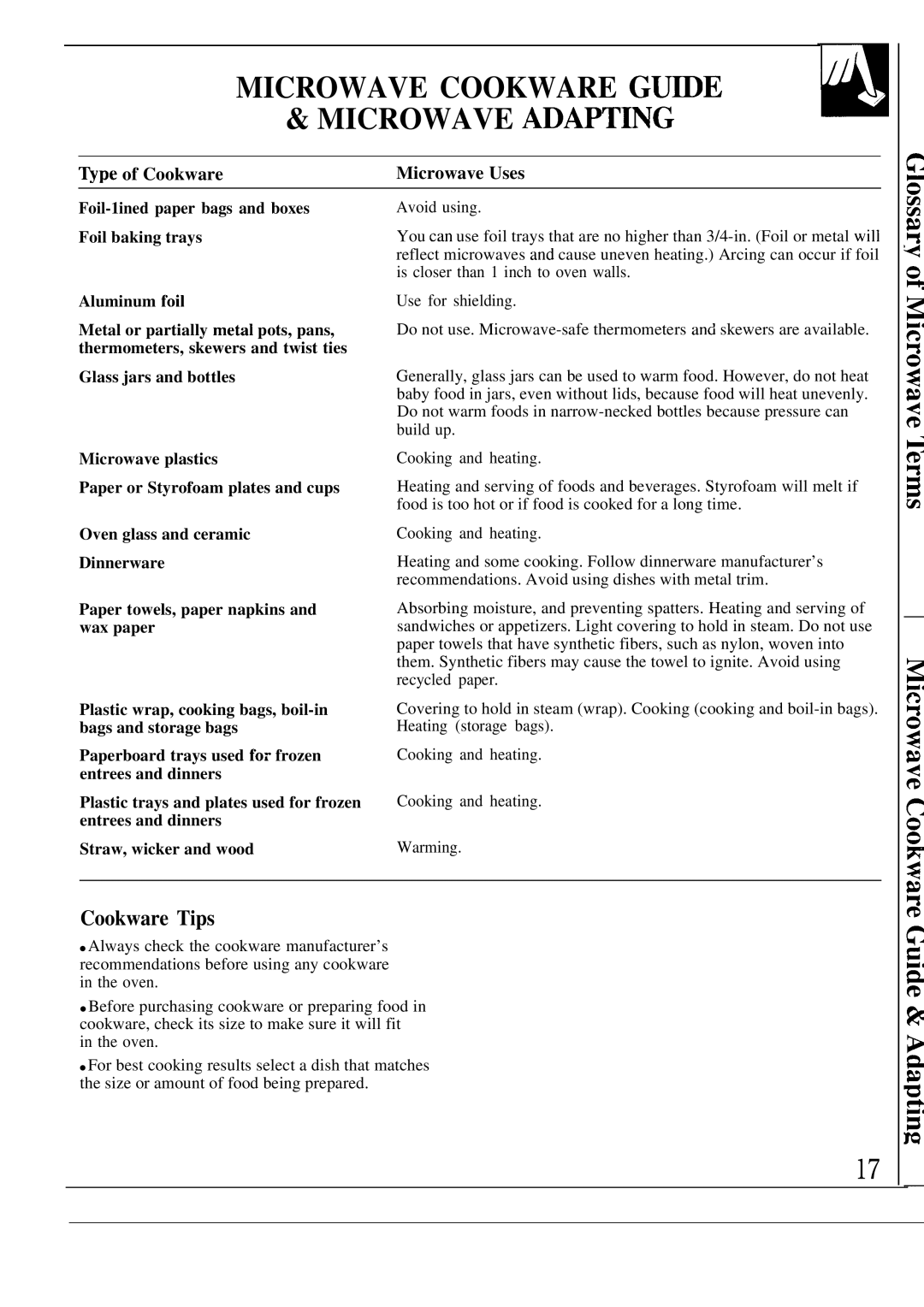
MICROWAVE COOKWARE GU~E
& MICROWAVE ADAPT~G
~pe of Cookware | Microwave Uses |
Foil baking trays
Aluminum foil
Metal or partially metal pots, pans, thermometers, skewers and twist ties
Glass jars and bottles
Microwave plastics
Paper or Styrofoam plates and cups
Oven glass and ceramic
Dinnerware
Paper towels, paper napkins and wax paper
Plastic wrap, cooking bags,
Paperboard trays used for frozen entrees and dinners
Plastic trays and plates used for frozen entrees and dinners
Straw, wicker and wood
Avoid using.
You can use foil trays that are no higher than
Use for shielding.
Do not use.
Generally, glass jars can be used to warm food. However, do not heat baby food in jars, even without lids, because food will heat unevenly. Do not warm foods in
Cooking and heating.
Heating and serving of foods and beverages. Styrofoam will melt if food is too hot or if food is cooked for a long time.
Cooking and heating.
Heating and some cooking. Follow dinnerware manufacturer’s recommendations. Avoid using dishes with metal trim.
Absorbing moisture, and preventing spatters. Heating and serving of sandwiches or appetizers. Light covering to hold in steam. Do not use paper towels that have synthetic fibers, such as nylon, woven into them. Synthetic fibers may cause the towel to ignite. Avoid using recycled paper.
Covering to hold in steam (wrap). Cooking (cooking and
Cooking and heating.
Cooking and heating.
Warming.
Cookware Tips
●Always check the cookware manufacturer’s recommendations before using any cookware in the oven.
●Before purchasing cookware or preparing food in cookware, check its size to make sure it will fit
in the oven.
●For best cooking results select a dish that matches the size or amount of food being prepared.
17
